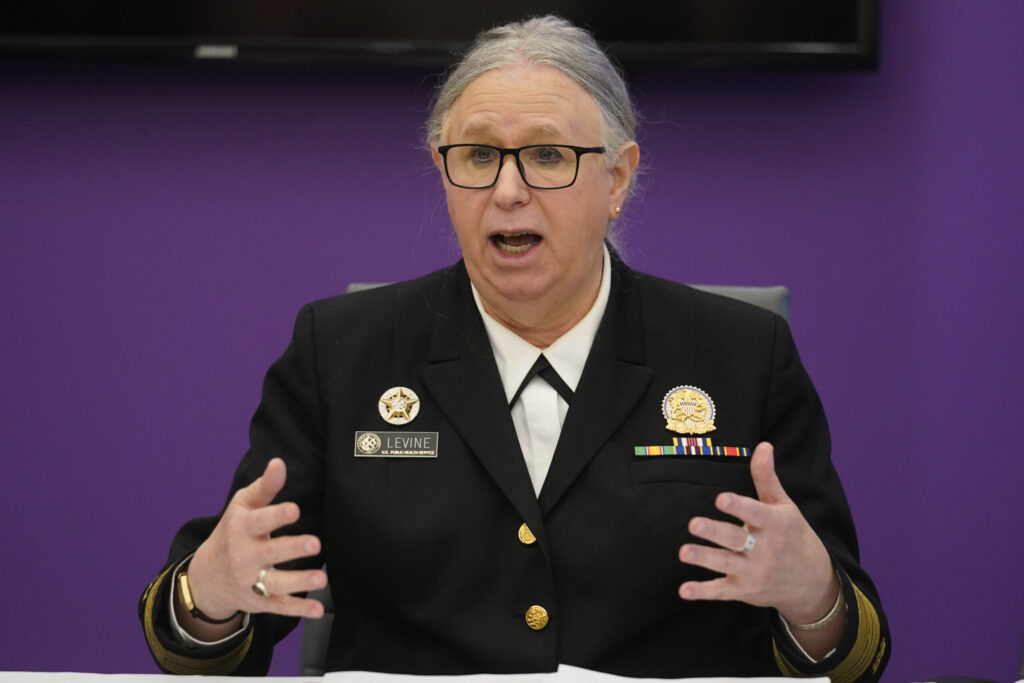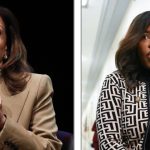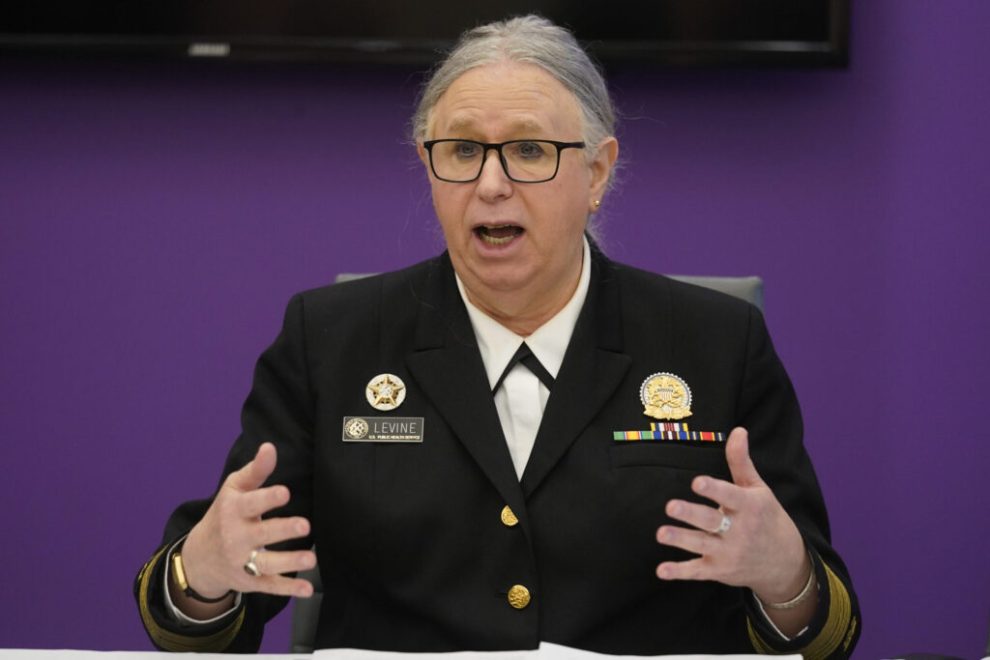The Secret Service’s failures during the near assassination of former President Donald Trump have once again shone the spotlight on so-called DEI hiring, with Director Kimberly Cheatle being accused of being a box-ticking diversity hire. This Washington Examiner series, Alphabet Soup, will take a closer look at whether the DEI chickens have come home to roost in the federal government, whether the private sector has finally had enough, and if the much-maligned term is here to stay or if it will simply morph into something else altogether. Part one will focus on the political fallout from government DEI.
Diversity, equity, and inclusion initiatives have taken a public relations beating in recent months, from the public sector and education to corporate governance, but the recent assassination attempt on former President Donald Trump raised deeper concerns about the ideology’s drive to circumvent merit in favor immutable characteristics such as race.
In the aftermath of the attempt on Trump’s life, which left one dead and others, including Trump, injured, observers noted how a seemingly disproportionate number of women, who were significantly smaller in stature than Trump, were on his personal Secret Service detail. Further still, several of the women on the detail were roundly criticized for appearing confused, nervous, and like they did not know what they were doing. The Secret Service’s past focus on diversity as a top agency priority has since come under scrutiny.
“That iconic photograph of Donald Trump I don’t think would have been possible if the person on the camera side of him had been a male,” Dr. Charles Lipson, political science professor emeritus at the University of Chicago, told the Washington Examiner. “That person would have been tall and would have been shielding the president’s face.”
DEI ideology, which puts characteristics such as gender and race ahead of merit, has become a mainstay in the federal government. As a lens for hiring and promotion, the already controversial ideology was injected early on into the Biden administration’s goals, with a June 25, 2021, executive order enshrining a commitment to DEI across the government. That order followed another order signed his first day in office on “advancing racial equity.”
While DEI, Lipson explained, may have on its face be designed to help middle-class minorities obtain an “initial push” into college or success outside the socioeconomic class in which they grew up, all too often the initiatives end up setting those people up for failure because the intended beneficiaries end up being underqualified and underperforming either at school or in the workforce.
The DEI mentality has had cross-governmental effects, many of which highlight the limitations and failures of promoting personnel for diversity features as opposed to merit.
“U.S. service members were lost on Joe Biden’s watch during the disastrous Afghanistan withdrawal because the leaders of the greatest fighting force in the world were more focused on hiring men in high heels,” Mark Serrano, a Republican strategist and president of Proactive Communications, told the Washington Examiner. “The regulation of our nuclear power plants was left to a bald, lipstick-wearing serial thief caught stealing designer luggage. A trans assistant secretary of health supports ‘gender-affirming care’ for minors, saying it’s ‘safe, medically necessary.’”
Serrano was referring to Sam Brinton, former deputy assistant secretary for spent fuel and waste disposition in the Department of Energy’s Office of Nuclear Energy, as well as Rachel Levine, assistant secretary for health at the Department of Health and Human Services.
Both are considered by critics to be DEI hires: Brinton claims to be gender fluid and upon appointment to the DOE enjoyed headlines such as “Nonbinary drag queen Sam Brinton appointed to Office of Nuclear Energy.” Brinton’s DOE description for a nuclear energy position touted him as a “well-known advocate for LGBTQ youth … [who] helped to secure protections against the dangerous and discredited practice of conversion therapy in more than half of the country. They identify as gender-fluid and use the pronouns they, them, and theirs.”
Brinton was forced out of the position after being arrested on multiple counts of grand larceny for stealing luggage at several different airports. The incident spawned significant negative headlines and political headaches for the Biden administration.
Levine, a biological man who identifies as a woman, continues to serve in HHS but has consistently advocated that children receive irreversible gender transition interventions as early as possible. Last month, Levine was caught pressuring the World Professional Association for Transgender Health, which writes medical standards of care, to remove age limitations for sex-change surgeries for children despite the large and growing body of medical evidence showing outcomes of such interventions are either unknown or dangerous for minors.

“DEI hiring is an abject failure as a social experiment with growing proof,” Serrano said. “Biden changed fundamental, merit-based standards that any employer would apply and continues to circumvent federal law to infuse his radical leftism into hiring policy. Three years later, we see the disastrous results of this policy that has cost American lives.”
Biden himself highlighted race as a qualifying characteristic in a recent interview, appearing to forget the name of Defense Secretary Lloyd Austin — referring to him as “a black man” who “runs that outfit over there.” He also highlighted the race of Supreme Court Justice Ketanji Brown Jackson, whom he nominated in 2022 after limiting the candidate pool to exclusively black women, in line with DEI ideology.
For the security failures at the rally where Trump was shot, critics have placed a large portion of the blame at the feet of Secret Service Director Kimberly Cheatle, who has heavily pursued DEI as a core aspect of the agency. For example, she previously announced a goal of ensuring that 30% of the Secret Service workforce was female by 2030.
“Now we see more lives have been lost through the actions of an agency sworn with the solemn duty to protect national leaders where the agency head set a 30% by 2030 mandate for hiring Secret Service women,” Serrano said. “Why 30%? Why not 50% or 60%? The truth is DEI in and of itself goes against nature and good hiring policy and is not sustainable at any level.”
Rep. Tim Burchett (R-TN) called Cheatle herself a “DEI hire,” and Christopher Rufo, a leading DEI critic, wrote that the “near-miss assassination reminds us of the stakes: split-second reactions, physical courage, and calm under pressure are all essential to the work of protecting the president. If any of those slip, even by an inch, the result is death. What we saw on Saturday was luck, not competence.”
On Thursday morning, House Speaker Mike Johnson (R-LA) joined a chorus of many others calling for the ouster of Cheatle.
The Secret Service’s equity chief, Loucious Hires III, highlighted the agency’s commitment to the ideology on a podcast in 2023, saying, “I could talk on and on what the agency is doing to promote diversity, equity, and inclusion. … DEI is every action every day.”
“Part of the things that we need to continue to do more is to be open and speak openly about diversity, equity, inclusion and accessibility,” Hires added. “And when every one of us within this agency can say this is a mission imperative, then we have achieved our ultimate goal.”
The whole-of-government DEI push has rippling effects outside the Secret Service — while still affecting life-and-death situations.
For example, the Federal Aviation Administration made DEI hiring paramount for air traffic controllers to the point that earlier this year, 11 state attorneys general sent a letter to agency Administrator Michael Whitaker concerned about passenger safety being put on the back burner, saying the agency “appears to prioritize virtue-signaling ‘diversity’ efforts over aviation expertise.”
The letter noted that last year, thousands of flights were delayed due to a system failure and that over the course of the past decade, near collisions with commercial planes have nearly doubled.
The Department of Defense has also prioritized DEI. Last year, the Navy was caught in a scandal using a drag queen as a digital ambassador for recruitment. The male, Yeoman 2nd Class Joshua Kelley, who dressed in women’s clothes and went by the name “Harpy Daniels,” was employed to use his drag performance to attract new recruits online. Military recruitment numbers continue to be down across the board.
In 2022, Charles Q. Brown, who serves as chairman of the Joint Chiefs of Staff and at the time was chief of staff of the Air Force, laid out explicit percentage goals for what appeared to be racial and gender quotas in the service branch — although the Air Force has denied they are quotas because quotas are illegal.
Much in the same way that one would not want a surgeon who was chosen based on race or gender but rather skill and merit, Lipson explained, personnel in critical positions should not be chosen that way either. Putting a DEI-oriented regime in place actually sows distrust in those who are relying on the surgeon or the air traffic controller or the fellow soldier because they know that person may not actually be the best suited for the position, the professor continued.
Even those who on paper appear qualified for positions may still go into them driven by DEI and other purely ideological goals, forcing an agency or position toward incompetence.
Cheatle, for example, spent 27 years in the Secret Service, becoming, as Biden’s nomination announcement highlighted, the “first woman in the role of Assistant Director of protective operations.” Brown spent his career in the Air Force and reached the highest ranks in the branch before reaching his current position. And Jackson, similarly, served on a U.S. district court from 2013-2021, before moving to an Appeals court until her appointment to the nation’s high court.
Jackson for her part, penned a lengthy defense of DEI principles in her dissent in the Supreme Court case that overturned affirmative action.
Even qualified individuals can fail to do their jobs effectively if they are driven primarily by a desire to implement DEI goals, Lipson said. He pointed to former Chairman of the Joint Chiefs of Staff Mark Milley, who was not a DEI hire but infamous for pushing DEI-oriented pursuits in the military.
“When you pick people because they fit some racial or ethnic criteria and they don’t do the job well, you face a real problem in firing them because then you’ll look as if you’re attacking that group,” Lipson said.
That appears to be the case with White House press secretary Karine Jean-Pierre, who has faced criticism for her handling of her job but whom some Democratic aides have seen as difficult to fire due to the political optics of terminating the first black lesbian to hold the post.
According to the New York Post, officials in the White House were unsuccessful in an attempt to remove Jean-Pierre, after many had grown frustrated with her tendency to read directly from her briefing binder and failure to create a perception of honesty. A source told the outlet that White House chief of staff Jeff Zients and senior communications adviser Anita Dunn “were trying to find Karine a graceful exit” due to the optics around forcing her out.
The White House denied attempts had been made to oust Jean-Pierre. However, the failure to remove her highlights not only the stranglehold of DEI but the underlying merit concerns associated with the ideology.
Taken together, the perception of failed and controversial DEI initiatives from the Biden administration has accelerated criticism of the ideology on the Right.
That has translated in recent days to increased scrutiny of Vice President Kamala Harris, whose performance has come under an even harsher spotlight thanks to the pressure on Biden to end his reelection bid and allow Harris or another Democrat to seek the presidency instead.
The perceived weaknesses of Harris as a replacement candidate and commander in chief has complicated the Democratic effort to remove Biden from the ticket. In 2020, when the nation was gripped by the George Floyd riots, then-candidate Biden had already committed to choosing a woman to be his running mate. As the riotous summer continued, the Biden campaign felt intense pressure to choose a black woman and picked Harris, who had earlier in the campaign called Biden racist.
Harris has been assigned some issue areas, most solving the “root causes” of historic illegal immigration. Her efforts on that assignment, given in the early months of the Biden administration, have not been fruitful, adding to the criticism of her selection as vice president.
Last year, the Border Patrol union posted to X, “If you were given a job two years ago with the explicit goal of reducing illegal immigration, and then you sit around and do nothing while illegal immigration explodes to levels never seen before, you should be fired and replaced.”
CLICK HERE TO READ MORE FROM THE WASHINGTON EXAMINER
Zients, apparently unable to recall during a recent magazine interview if Biden had even one time relied on Harris for guidance, noted that Harris’s contribution to the administration’s response to the coronavirus was that she was instrumental in making “equity” an essential part of it.
Harris’s approval ratings are also dismal, with 54% of the country disapproving of her and only 39% approving, according to RealClearPolitics.
























